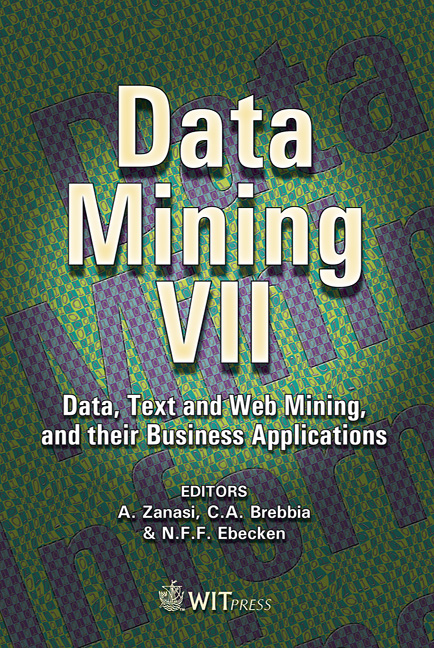Evidence-based Medicine: Data Mining And Pharmacoepidemiology Research
Price
Free (open access)
Volume
37
Pages
8
Published
2006
Size
467 kb
Paper DOI
10.2495/DATA060311
Copyright
WIT Press
Author(s)
B. B. Little, R. A. Weideman, K. C. Kelly & B. Cryer
Abstract
Evidence-based medicine is an important initiative of the U.S. National Institutes of Health. However, published data are limited. Medical knowledge can be advanced through pharmacoepidemiology and data mining research of very large databases, data warehouses. Before Vioxx™ (rofecoxib) and Celebrex™ (celecoxib) were publicly suspected of being associated with acute myocardial infarction and stroke, etodolac was evaluated for gastrointestinal safety using a data warehouse constructed from several data sources and data mining tools embedded with pharmacoepidemiologic methods. Results were published in a top tier medical journal, and established gastrointestinal safety of a generic COX-2 analgesic medication. This project demonstrates that the knowledge needed for evidence-based medicine can be augmented through pharmaco-epidemiology research using data mining and data warehousing. Keywords: evidence-based medicine, pharmacoepidemiology, data mining, data warehousing. 1 Introduction Evidence-based medicine is strongly advocated by the U.S. National Institutes of Health [1], and is a high funding priority. Between November 1992 and March 2006, 20,697 publications indexed by the National Library of Medicine list \“evidence-based medicine” as a keyword (Figure 1). Evidence-based medicine is a structured analytical process in which published medical research is used to critically assess the efficacy and safety of different medical interventions. The
Keywords
evidence-based medicine, pharmacoepidemiology, data mining, data warehousing.





